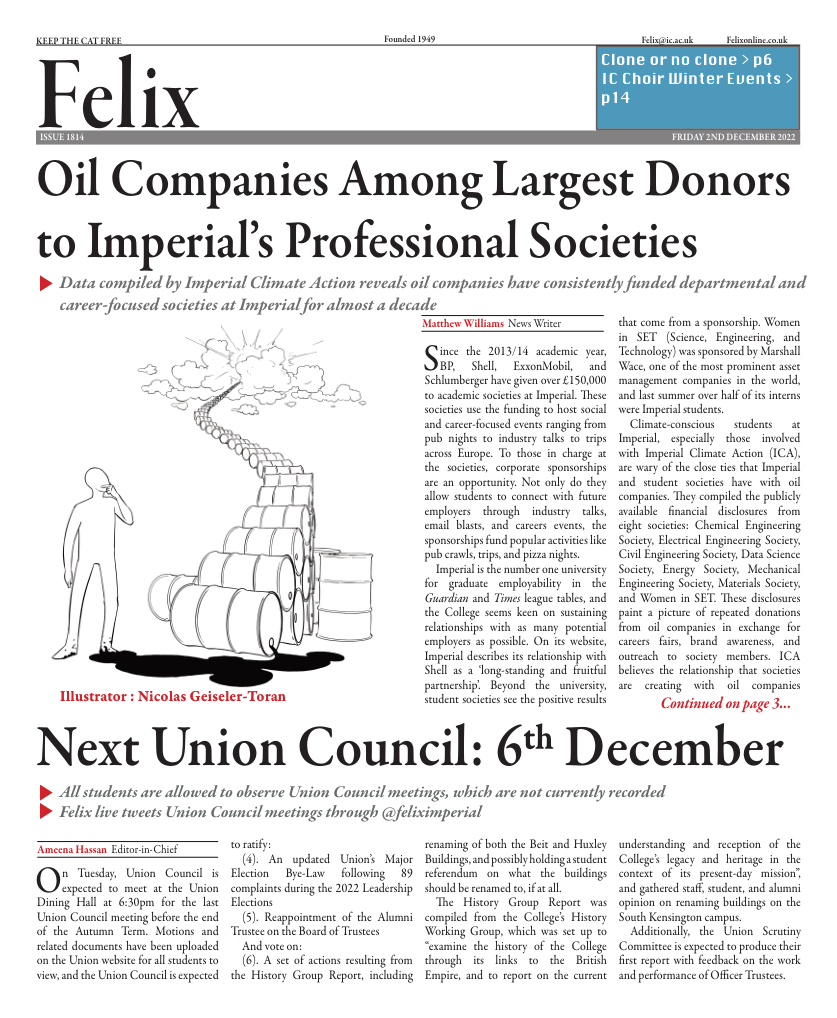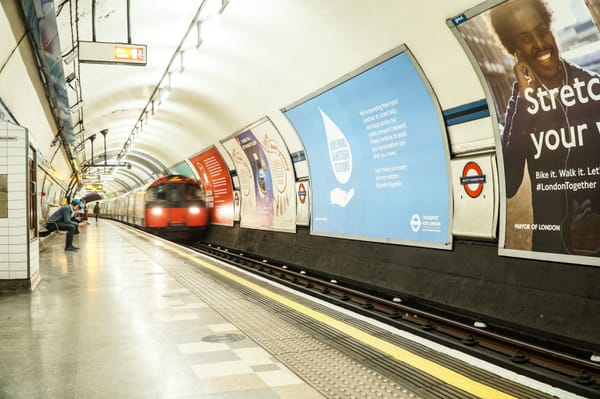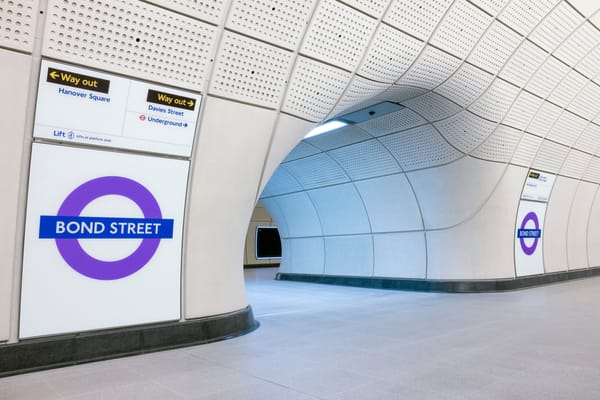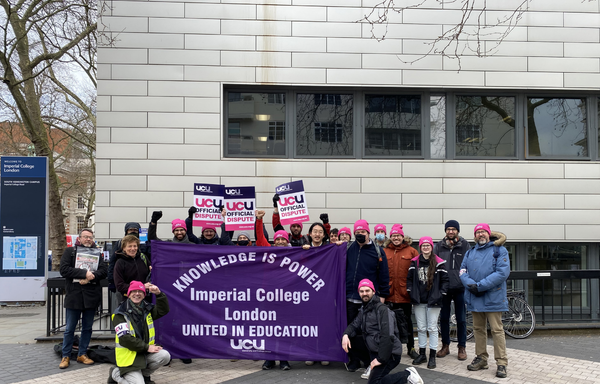Imperial College Union: a beginner's guide
Felix provides an overview of Imperial's student union, exploring its role and history
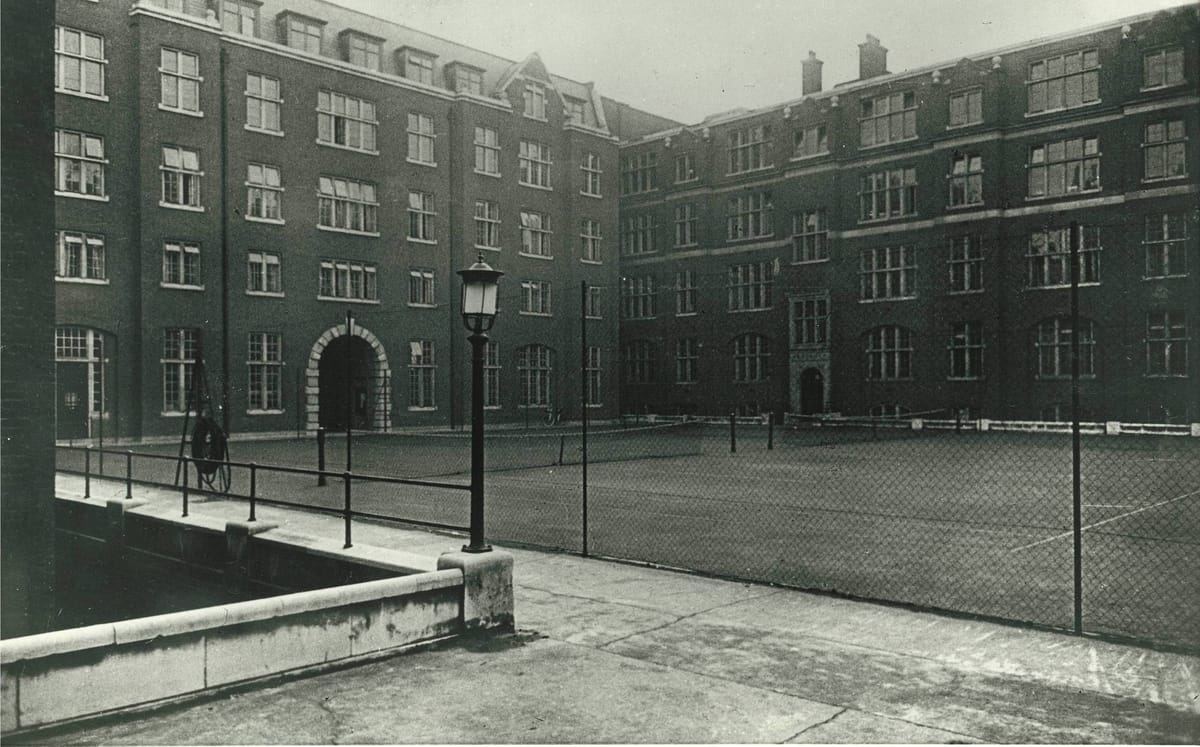
I need to kick this article off with a declaration of interest. I worked in the Union offices a lot last year as Editor of Felix, I am a Trustee of the Union this year, and over the summer I wrote a book titled ‘The History of Imperial College Union’. This is supposed to be a brief explainer on the enigmatic body that looks after student activities, welfare, educational lobbying and a number of the bars.
What is a Students' Union?
SUs became a mandatory requirement for all institutions of higher education following the ascent into law of the 1994 Education Act, which defined an SU as “a representative body (or an association of the generality of students) whose principal purposes include representing the generality of students at an establishment... in academic, disciplinary or other matters relating to the government of the establishment.” Imperial College Union is a registered charity, as of 2012, and has as its charitable purpose “the advancement of education of students at Imperial College London for the public benefit by: promoting the interests and welfare of students at Imperial College London during their course of study and representing, supporting and advising students; being the recognised representative channel between students and Imperial College London and any other external bodies; and providing social, cultural, sporting and recreational activities and forums for discussions and debate for the personal development of its students.” Thus, the justification for the Union’s existence is that it supports YOU during your time at the College.
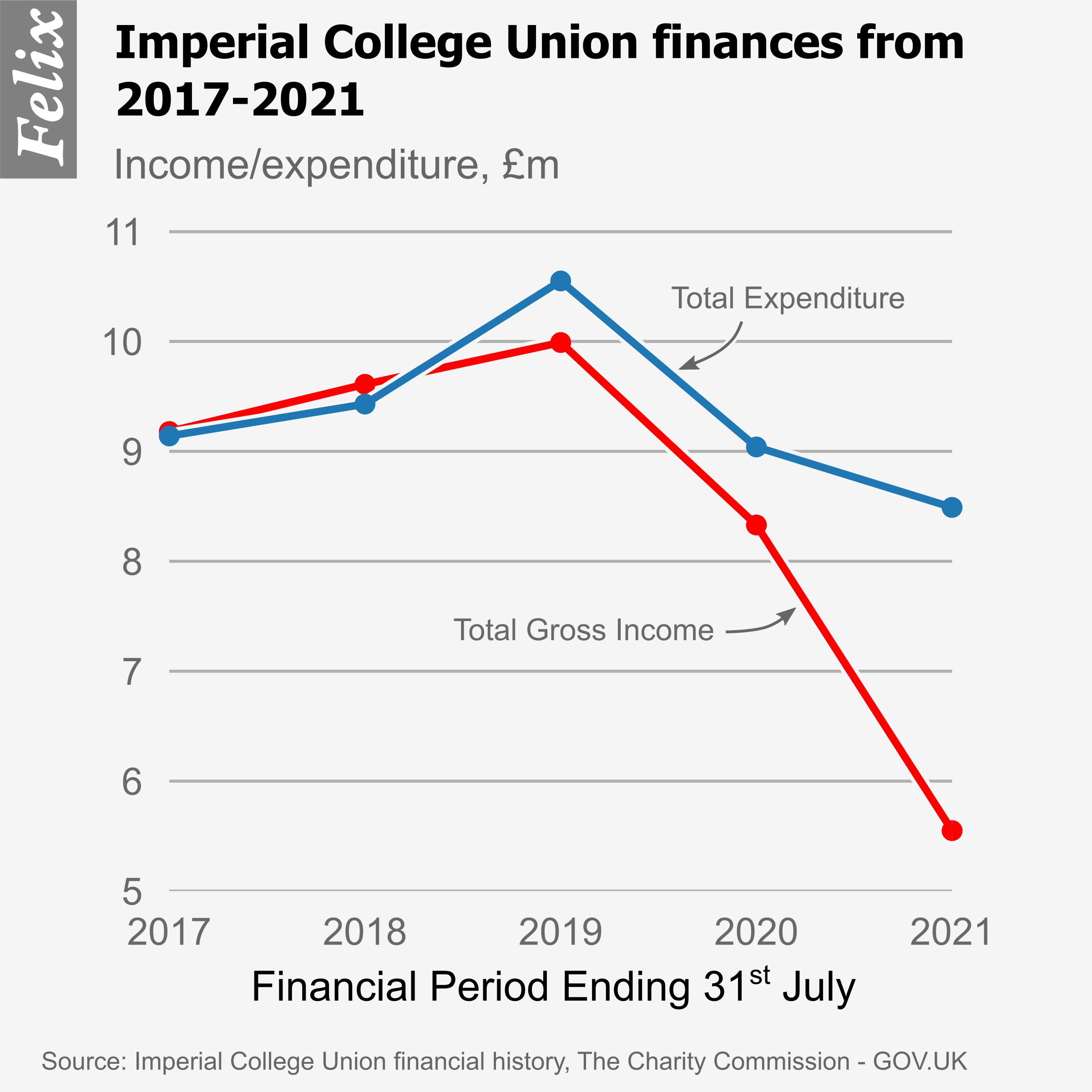
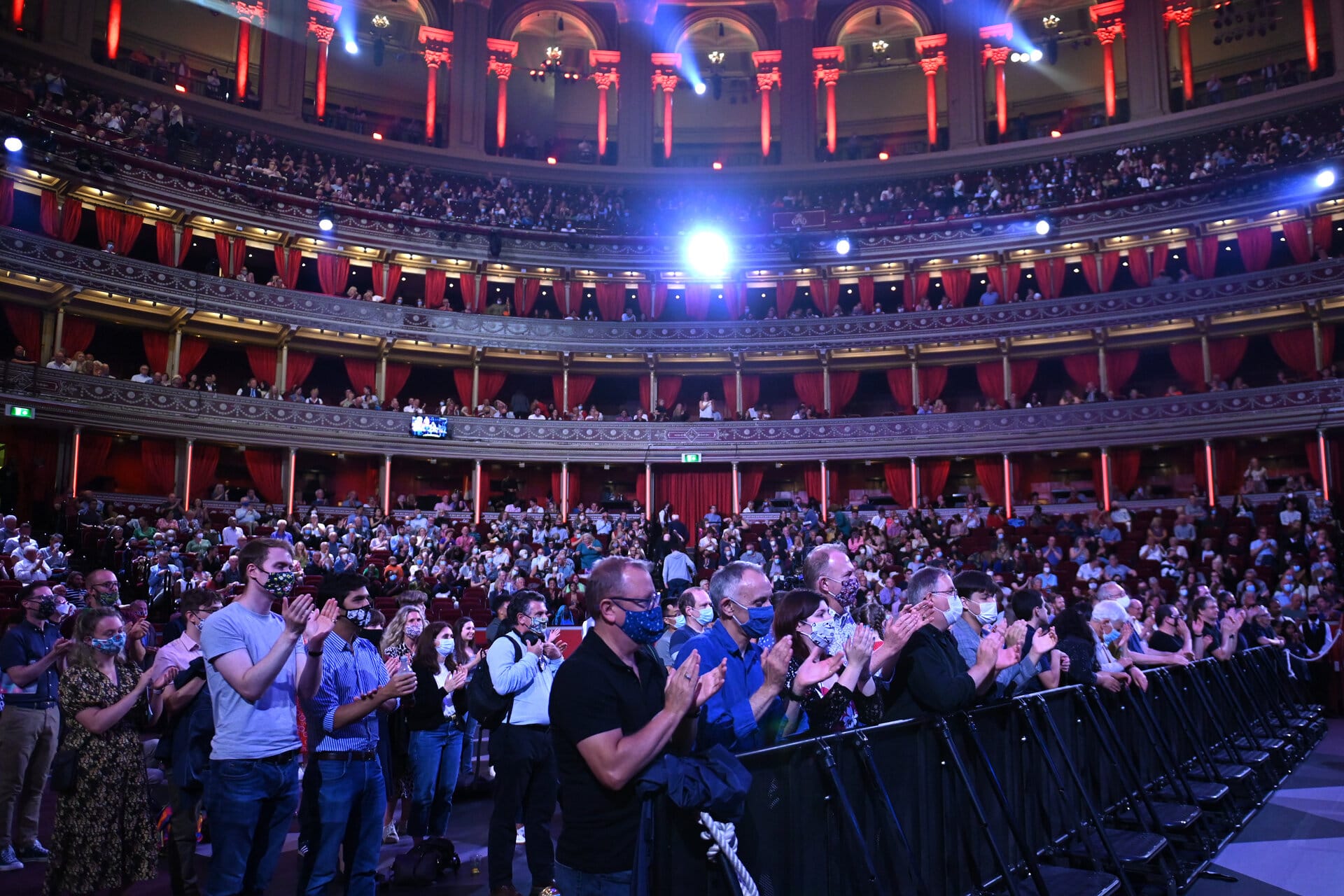
Money, money, money
As a registered charity, ICU is obliged to report financial data to the Charity Commission, who make this information available, for all charities, for the previous five years. As can be seen in the accompanying graph, income took quite a hit in the period of July 2019 - July 2020, and even more so July 2020-July 2021. Whilst detail on this is scant, it shouldn’t come as a surprise that a pandemic forcing all bars to close for months on end has a negative effect on their finances.
Each year the Union received a “block grant” from the College, averaging around £3 million over the last few years (from your tuition fees). The block grant covers things like salaries of permanent staff and operational costs such as IT. Further money is earned from the bars, event sales and room bookings (see the BBC set up shop on the first floor of the Union Building every year for a couple of weeks to host the Proms).
Management and governance
When an organisation becomes a charity it must appoint a board of trustees to oversee the charity’s operation in a non-executive fashion. ICU has 16 trustees, six of whom are “lay trustees”, professionals from without the Union or College who have a philanthropic interest in the Union doing well. Further to these people, the President and Deputy Presidents make up five more trustees, alongside the Council Chair and four student trustees.
On the executive side, 61 staff members allow the Union to operate all the services it provides. At the top of this ladder, bar reporting to the trustees, is Tom Newman, Managing Director since October 2022. Thanks to finicky employment laws, Tom is the only member of permanent Union staff that Felix is allowed to name in print - we can mention the actions of all departments and groups within the Union, but making any individual member of staff identifiable could land the paper, and the Union, in legal hot water.
The previous Managing Director was paid somewhere between £90k and £100k per year - an amount so high that the Charity Commission deems it obligatory to share publicly (all salaries paid by charities over £60k). Similarly, two other members of staff, presumably two other members of the management team, are paid between £60k and £70k each. The President and each of the Deputy Presidents, as well as the ICSMSU President, are paid £35,477 per year, and the Felix Editor is paid 83% of this amount due to the fact that the paper only prints in term time, leaving the Editor twiddling their thumbs during the summer and Easter breaks.
The Union Council
Have you ever met someone way up their own ass rambling about some sort of role they hold that they got elected to in Autumn? That person may well be on the Union Council, the democratically elected student body that represents the interests of students. For most of the Union’s history the Union Council was the ultimate decision-making body of the Union, however bureaucratisation and professionalisation have meant that this is no longer the case. The Union Council, who vote on issues with about as much principled direction as a windsock, should not be given free reign of around £10 million per year, it seems to have been decided over the past couple of decades.
As a body, the council could technically vote for literally anything, from facetious suggestions such as spending the entire annual budget on ramen, to more realistic ones such as re-joining the NUS. Nowadays, rather than obliging the Union to carry out whatever actions have been approved, a council vote often just means that the student body’s opinion is thus. Any decision that could negatively effect the Union financially, reputationally or otherwise, can be overridden by the board of trustees.
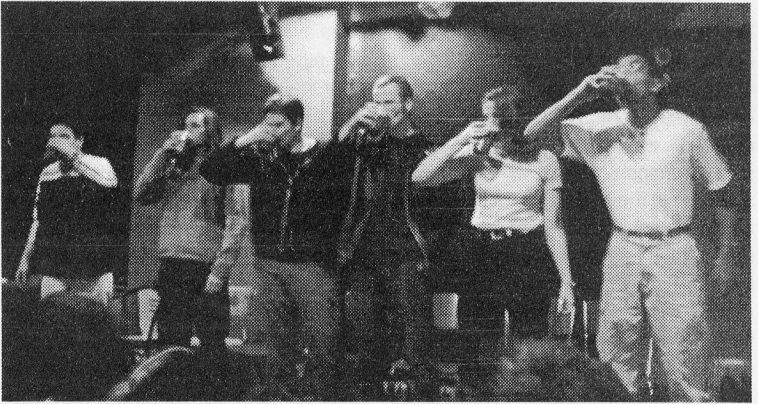
History
The Union was founded in 1911 when its first set of bye-laws were passed by the Governing Body of Imperial College London. The construction of the Union Building was finished the same year (though only two floors tall at that point). Until 1981, membership of ICU was male-only, and women students were instead members of the Imperial College Women’s Association, or ICWA (pronounced ik-wa). Furthermore, the Union Bar (the one at the northeast corner of Beit Quad, not 568) was male only until 1972, with ICWA members instead offered the “ICWA lounge”. 568 used to be called “da Vinci’s” and Metric used to be called “db’s” (short for “Decibel’s”; how things come full circle).

Satisfaction
The Union is consistently the worst-performing aspect of Imperial College London, as covered by the National Student Survey of final year students each year. When asked whether ICU effectively represents their academic interests, only a 58% responded positively in 2021 and 2022 (compared to 82% overall satisfaction in 2022). Satisfaction with the Union hit a trough in 2019 with a rate of just 51%.
Support
The Union has an award-winning advice service that has been totally transformed in the last couple of years. They can offer advice on academic and disciplinary issues, as well as point you in the right direction if you have financial trouble or wish to lodge a complaint. You can reach out to them by emailing advice@ imperial.ac.uk.

